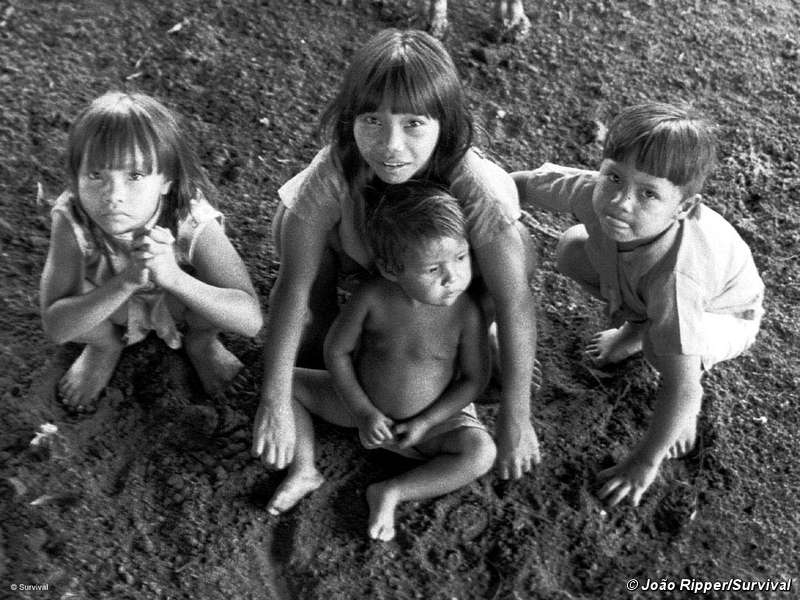By Patrick Vanderpool
Impunity Watch Reporter, South America

RIO DE JANEIRO, Brazil – The Brazilian Government is being urged to get involved in a dispute between a group of Guarani Indians and armed gunmen in a clash over the indigenous peoples’ ancestral lands.
Local wealthy farmers and ranchers want the valuable land located in southern Brazil for farming. They hired the gunmen to intimidate and threaten the indigenous peoples after the Indians returned to their ancestral land.
The hired gunmen have surrounded the lands for over a month, and have cut off the Indians’ access to food, water and health care. Although the Guarani have pleaded for help, Brazilian authorities have yet to provide the Indians with assistance. Officials from Brazil’s federal health ministry have reportedly refused to enter the lands citing “security problems.”
Exterior pressures are beginning to mount against the Brazilian government’s failure to act. Survival, an international organization that campaigns for the rights of indigenous tribal peoples, has written to the Brazilian authorities demanding immediate police action to lift the siege of the community.
Survival’s Director, Stephen Corry, said, “[a]nyone unfamiliar with the Guarani’s appalling plight would be staggered that the authorities are prepared to stand by and watch a peaceful and defenseless community being held hostage in this way.”
Additionally, Brazil’s Catholic Bishops’ Conference demanded government intervention to protect the Indians.
The Catholic bishops called for the Brazilian government to facilitate a “rapid, urgent and effective” solution to the violent standstill. According to the bishops, a solution should include a “definitive demarcation of indigenous lands and an expulsion of ranchers found to be on Guarani territory.”
According to one estimate from a Catholic Church body, as many as 80 gunmen are responsible for keeping the Guarani from coming and going.
Roughly 60,000 Guarani Indians live in Brazil, which constitutes the country’s largest indigenous group. The Guaranis are struggling economically because authorities have delayed the demarcation of Indian lands, effectively concentrating the Guarani population in areas too small to support them. Often times, Guarani sects live in overcrowded reserves or in makeshift camps on the side of highways.
For more information, please see:
Catholic Culture – Brazilian Bishops Condemn Violence against Guarani – 24 September 2010
Latin American Herald Tribune – Brazilian Government Urged to Protect Besieged Indians – 22 September 2010
Brazzil Mag – Gunmen in Brazil Trap Indians Cutting off Their Water and Food – 15 September 2010

